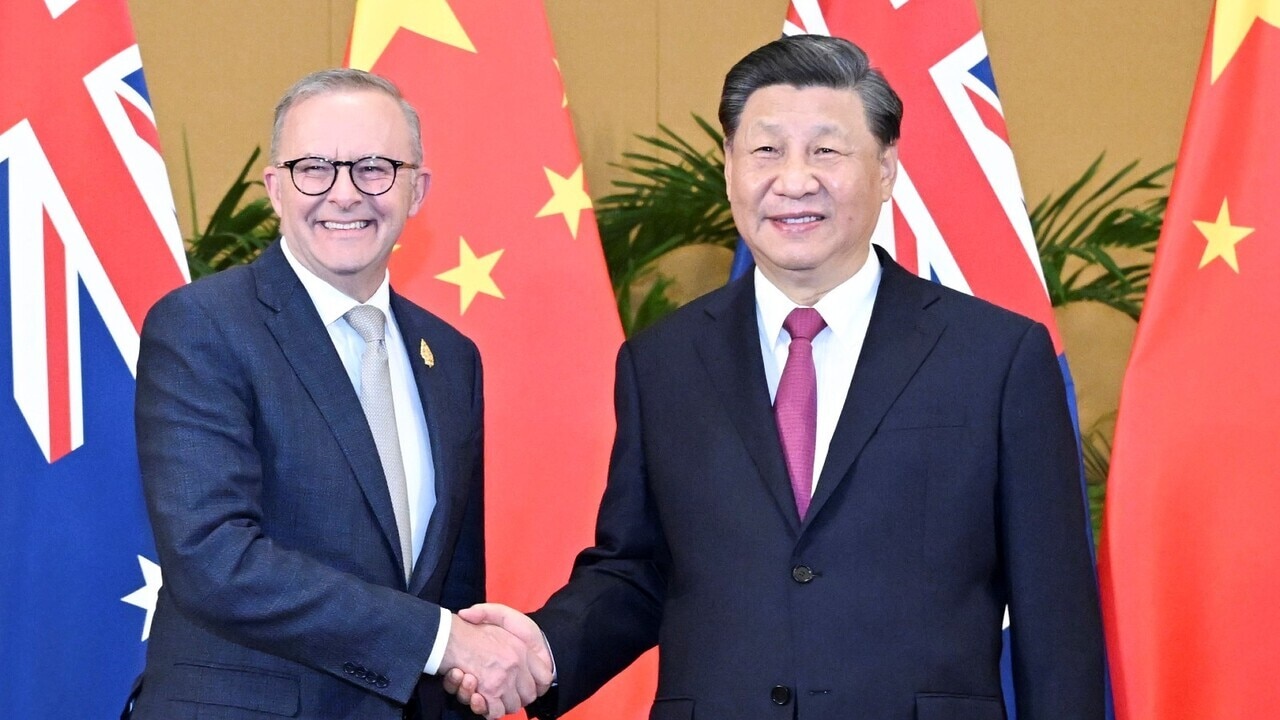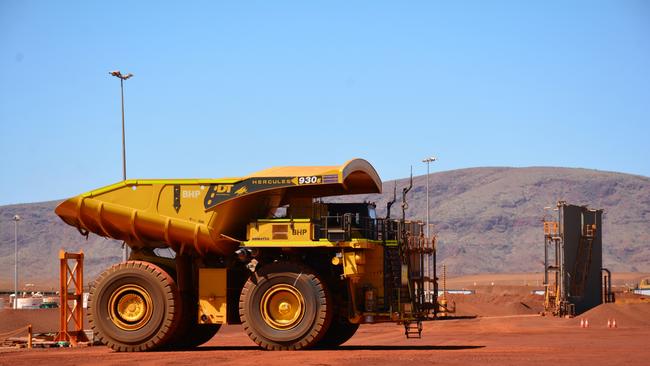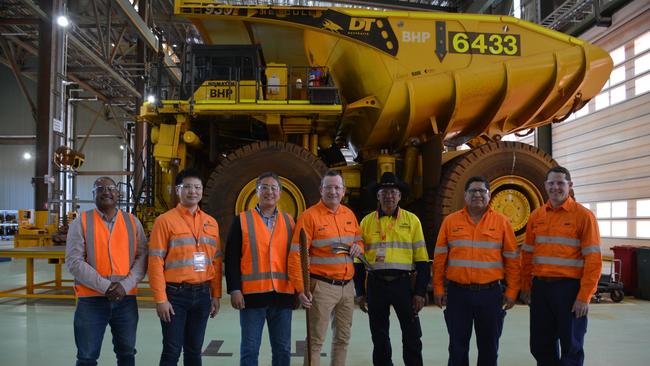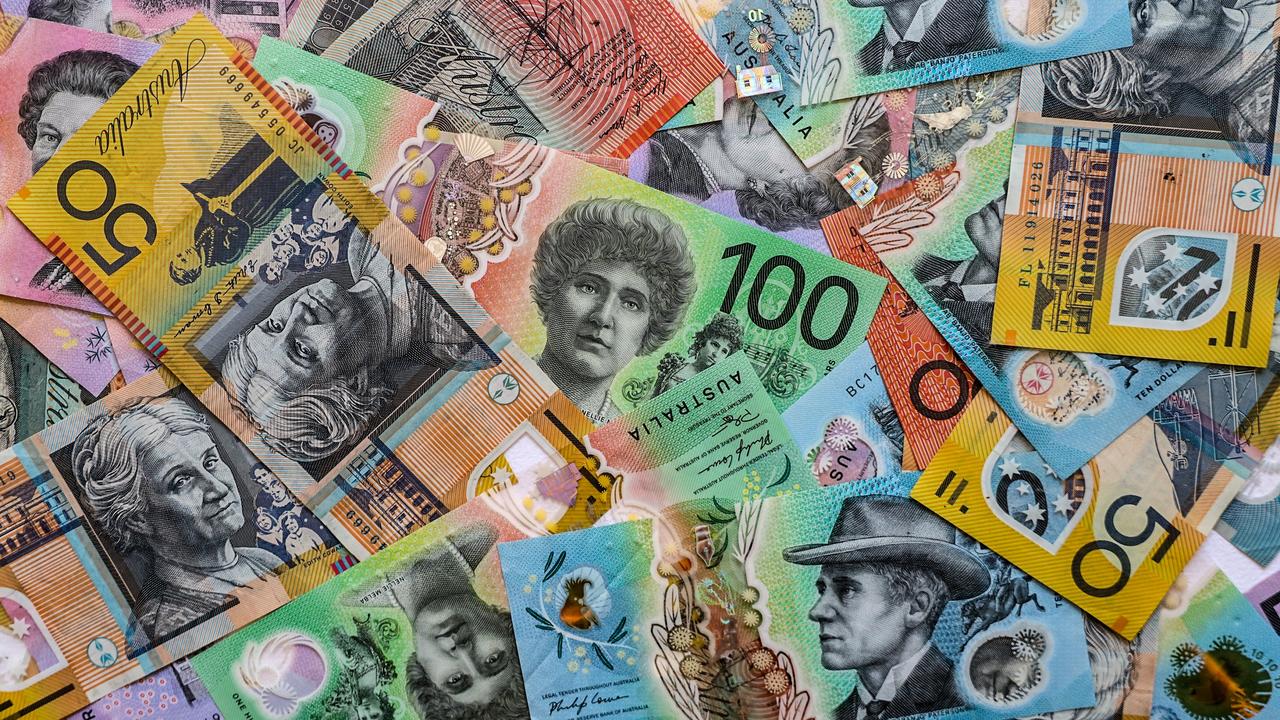‘Living standards will suffer’: Australia’s bleak economic future revealed
Australia’s over-reliance on this trading partner will see our living standards fall within the next ten years, experts have warned.

Business Breaking News
Don't miss out on the headlines from Business Breaking News. Followed categories will be added to My News.
China’s slowdown and diversification away from Australian iron ore will have an impact on our economy, but experts differ on what it will mean for domestic living standards.
China’s economy expanded in the third quarter at the slowest pace since early last year, as the country struggles to boost flagging growth. On an annual basis, gross domestic product (GDP) rose by 4.6 per cent in the three months to the end of September, according to China’s National Bureau of Statistics, short of the around 5 per cent target.
With an oversupply of properties, the most obvious impact for Australia is in the iron ore sector as China’s need for steel falls.
This comes at the same time the IMF downgrades Australia’s economic outlook predicting growth of just 1.2 per cent in 2025 and headline inflation will grow to 3.6 per cent as government subsidies rise.

On the one hand, economists argue Australia has become over reliant on China and therefore this slowdown will see Australia’s living standards fall, while others say China’s impact might not be as bad as first expected.
Independent economist Saul Eslake warns China’s need for Australian iron ore is falling today and will only expand over time.
“By the early 2030s China will, like most advanced economies, source the bulk of its steel requirements by recycling scrap steel, something they don’t do at the moment because their use of steel is recent,” he said.
“By the end of the decade it is likely we will be selling less iron ore to China at a much lower price.”
He also said Australia can’t replicate the success it’s had in the Chinese market elsewhere, because no other country will need iron ore at the same pace as China.
ASPI senior fellow David Uren largely agrees, warning the impact of China’s slowdown is already being felt in Australia.

“It is a chill that will likely be felt in Australia … While the impact of weaker exports will flow through to superannuation returns, the value of the Australian dollar and the cost of imported goods. Living standards will suffer,” Mr Uren wrote in an economic note.
Meanwhile, The Australian Institute’s senior economist Matt Grudnoff said China will obviously have an impact on GDP, but it won’t impact living standards as much as people think.
“The effect isn’t as large as you might initially think. The mining industry isn’t a huge employer and most of the stuff it makes is profit and a big part of that is exported overseas,” Mr Grudnoff said.
How much has China added to the Australian economy
There’s no doubt China’s exports make up a large part of Australia’s exports and also have contributed to our living standards.
Bankwest Curtin Economics Centre (BCEC) estimates that Australian trade with China increased disposable income by an average of $2,600 per Australian household in the financial year 2022-23, reaching as high as $8,700 in some states.
“This equates to 4.6 per cent of disposable income per capita and $29 billion on aggregate to Australian households,” the report found.
The research finds a further 595,600 jobs in Australia are supported through trade with China, or 4.24 per cent of our total employment is through this trade.

Much of this has come down to the mining sector, making up 14.3 per cent of Australia’s economic composition, according to the RBA. China as Australia’s largest trading partner makes up around 33 per cent of Australia’s net trade.
“Exports to China account for about 7 per cent of Australia’s GDP, so it matters immensely for us and we benefit from things that are a booster for iron ore and coal in particular.,” Mr Eslake said.
Mr Grudnoff said the mining sector is actually less important than Australians think.
“Of all the industries in Australia, GDP does a particularly poor job on showing the economic impacts on Australia.
This is due to GDP being made up of all the wages the mining sector pays out and all the profits it makes, but it does not account for where the money ends up.
“So while wages are usually made by Australians in Australia and therefore spent in Australia. Profits in the mining sector are around 80 per cent foreign owned, which means 80 per cent of the GDP just flows to the foreign owners.”
What should we do before 2030
The economists agree Australia needs to diversify its trade to offset any risks out of China.
“It’s bad to be hugely dependent on any one industry or one country. If you go to an investment adviser, they tell you to diversify and the same is true for a country.
Although Mr Grudnoff said China might not have the impact on Australia as previously expected.

“When China did put these tariffs on Australia, it didn’t actually have a big impact which is partly why China reversed them.
“There was just a rearrangement of trade. Once everything settled down, the impact was mostly on China as they had to outbid other suppliers,” he said.
Mr Eslake said Australia has been “extraordinarily fortunate”, going 30 years without a recession, with many of the big structural reforms coming from times of struggles.
The economist said Australia needs to either increase its productivity or look to diversify its customers, although points out there is only one country like China.
“All the countries in South East Asia equal 700 million people and there are absolutely opportunities in Indonesia, the Philippines, Vietnam and Thailand that Australian businesses should be looking to do business with to reduce our dependence on China”, he said.
“But none of those countries are going to give us the leg up that China has in the last 3 decades.
“All of this highlights the challenges we are going to face without the tailwinds that the Chinese economy has given us and why we need to focus on productivity growth,” he said.
Australia has primarily been a quarry that has just sold commodities but should value add as it is harder to get, he said.
“If Australia did want to protect itself from being reliant on another country then going up the value chain would be the best way to do it.”
Originally published as ‘Living standards will suffer’: Australia’s bleak economic future revealed


